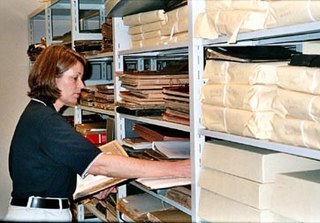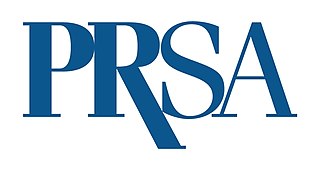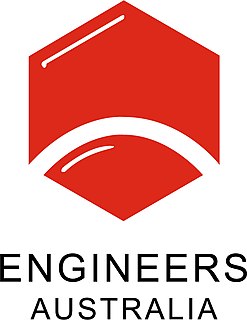
The American Psychological Association (APA) is the largest scientific and professional organization of psychologists in the United States, with over 121,000 members, including scientists, educators, clinicians, consultants, and students. It has 54 divisions—interest groups for different subspecialties of psychology or topical areas. The APA has an annual budget of around $115m.
Coaching is a form of development in which an experienced person, called a coach, supports a learner or client in achieving a specific personal or professional goal by providing training and guidance. The learner is sometimes called a coachee. Occasionally, coaching may mean an informal relationship between two people, of whom one has more experience and expertise than the other and offers advice and guidance as the latter learns; but coaching differs from mentoring by focusing on specific tasks or objectives, as opposed to more general goals or overall development.
Ethical codes are adopted by organizations to assist members in understanding the difference between right and wrong and in applying that understanding to their decisions. An ethical code generally implies documents at three levels: codes of business ethics, codes of conduct for employees, and codes of professional practice.

The American Institute of Certified Public Accountants (AICPA) is the national professional organization of Certified Public Accountants (CPAs) in the United States, with more than 418,000 members in 143 countries in business and industry, public practice, government, education, student affiliates and international associates. Founded in 1887, the organization sets ethical standards for the profession and U.S. auditing standards for audits of private companies, non-profit organizations, federal, state and local governments. It also develops and grades the Uniform CPA Examination. The AICPA maintains offices in New York City; Washington, DC; Durham, NC; and Ewing, NJ.

An archivist is an information professional who assesses, collects, organizes, preserves, maintains control over, and provides access to records and archives determined to have long-term value. The records maintained by an archivist can consist of a variety of forms, including letters, diaries, logs, other personal documents, government documents, sound and/or picture recordings, digital files, or other physical objects.

The American Sociological Association (ASA) is a non-profit organization dedicated to advancing the discipline and profession of sociology. Founded in December 1905 as the American Sociological Society at Johns Hopkins University by a group of fifty people, the first president of the association would be Lester Frank Ward. Today, most of its members work in academia, while around 20 percent of them work in government, business, or non-profit organizations.

The Chartered Institute for Archaeologists (CIfA) is a professional organisation for archaeologists working in the United Kingdom and overseas. It was founded in 1982, and at 21 July 2020 had 3931 members overall, of whom 3033 were accredited professionals; it also has 80 accredited organisations..
A code of conduct is a set of rules outlining the norms, rules, and responsibilities or proper practices of an individual party or an organisation.
The Council for Christian Colleges & Universities (CCCU) is a higher education association of more than 180 Christian institutions, primarily in the United States and Canada. Founded in the 1970s to advance the interests of church-related colleges through government lobbying and public relations, the council also provides professional development for employees of member schools and runs the Best Semester off-campus study programs for students at nine locations around the world.

The World Medical Association (WMA) is an international and independent confederation of free professional medical associations, therefore representing physicians worldwide. WMA was formally established on September 18, 1947 and has grown in 2018 to 113 national medical associations and more than 10 million physicians.

The Australian Psychological Society (APS) is one of the professional associations for psychologists in Australia. The APS claims to have more than 22,000 members, making it the largest professional body representing psychologists in Australia. The Society's Code of Ethics was adopted in 2007 and became the Code of Ethics for the profession in Australia in 2010 when it was taken up by the newly-formed Psychology Board of Australia. The APS also provides members with recommendations of appropriate fees to charge for their professional services.

The Public Relations Society of America (PRSA) is a nonprofit trade association for public relations professionals. It was founded in 1947 by combining the American Council on Public Relations and the National Association of Public Relations Councils. That year it had its first annual conference and award ceremony. In the 1950s and 1960s, the society created its code of conduct, accreditation program and a student society called the Public Relations Student Society of America.
Engineering ethics is the field of system of moral principles that apply to the practice of engineering. The field examines and sets the obligations by engineers to society, to their clients, and to the profession. As a scholarly discipline, it is closely related to subjects such as the philosophy of science, the philosophy of engineering, and the ethics of technology.
The International Association of Business Communicators (IABC) is a global network of communications professionals.
Information Systems Security Association (ISSA) is a not-for-profit, international professional organization of information security professionals and practitioners. It was founded in 1984, after work on its establishment started in 1982. ISSA promotes the sharing of information security management practices through educational forums, publications and networking opportunities among security professionals.

The Institute of IT Professionals (IITP) is a non-profit incorporated society in New Zealand. As New Zealand's ICT professional body, the IITP exists to promote education and ensure a high level of professional practice amongst ICT professionals. Before July 2012, IITP was known as the New Zealand Computer Society Inc (NZCS).

The Institution of Engineers Australia, often shortened to IEAust and/or trading as Engineers Australia (EA), is a professional body and not-for-profit organisation dedicated to being the national forum for the advancement of the engineering field within Australia and a member of Washington Accord. As of 2017, it has around 100,000 members in nine geographic Divisions and five international chapters from all engineering disciplines, including 41,000 Students, 4,400 Engineering Technologists and Engineering Associates, 55,600 Professional Engineers. The members all belong to one or more of nine Colleges covering the different fields of engineering practice. 20,000 members are Chartered Engineers.
The Council of Graduate Schools (CGS) is a nonprofit higher education organization with headquarters in Washington, DC. Its mission is to advance graduate education and research. Its main activities consist of best practice initiatives, data analysis, advocacy, and global engagement.
The Canadian Association of Social Workers (CASW) is the national association for the social work profession in Canada.










